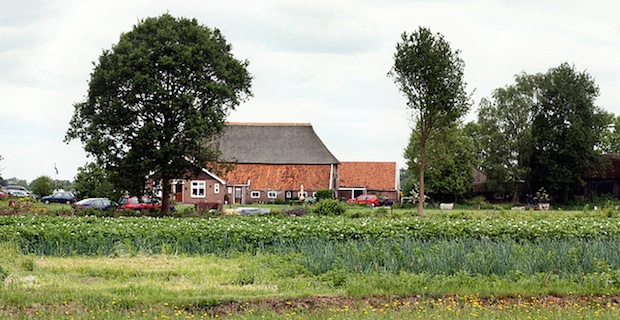
Many of us who choose to live as naturally as possible may have started buying organic foods because we wanted to reduce the amount of pesticides and antibiotics our bodies ingest, or because it’s better for the planet, or because it’s an easy way to eliminate a lot of processed additives and preservatives from our diets. But there’s another good reason to buy organic, and that’s to ensure that you are not eating any GMOs.
Read more about the reasons to avoid GMOs
While there are some GMO-free foods that aren’t organic, unless a food label has a third party verification from a group such as the Non-GMO Project, it’s likely that your conventionally grown food has GMOs if it lists corn, canola, soy, sugar, or cottonseed, and their derivatives, in the ingredients. However, certified organic foods are not allowed to contain GMOs. And while GMO seeds have been known to travel with the wind from conventional farms and contaminate their organic neighbors, organic farmers are required to follow strict rules to remain GMO-free and maintain their organic status.
As to what it means for an organic farm to be GMO-free, in basic terms the USDA says, “This means an organic farmer can’t plant GMO seeds, an organic cow can’t eat GMO alfalfa or corn, and an organic soup producer can’t use any GMO ingredients. To meet the USDA organic regulations, farmers and processors must show they aren’t using GMOs and that they are protecting their products from contact with prohibited substances, such as GMOs, from farm to table.”
Organic farmers follow the organic system plan which is the five steps to organic certification. With this plan, the organic farmers must create buffer zones to avoid contamination from GMOs. Some farmers take measures such as planting crops at different times than their conventional neighbors because the flowers of the crops are more likely to cross-pollinate if they are in bloom at the same time. The USDA agents who certify organic farms also conduct residue testing to determine that the farm is doing enough to keep their crops free from GMOs as well as pesticides and antibiotics.
Read more about the dangers of pesticides
So, what happens if the agents do find traces of GMOs on an organic farm? While you may be inclined to think that they would immediately shut it down, this isn’t the case, and that’s actually a good thing. As long as the organic farmers are showing due diligence to not use GMOs, they will not be punished if seeds from nearby conventional farms contaminate their farm. The USDA will work with them to determine the source of the contamination and help them develop better barriers such as larger buffer zones, physical barriers, and even better cleaning of machines that may be used to process both organic and conventional crops. This helps the USDA in creating more effective regulations to keep organic farms truly organic.
[Infographic] The 8 Most Common GMO Foods
However, if a farm is found to have been neglectful in keeping GMOs out of their organic crops, they can expect to be fined and lose their organic certification.
The bottom line is that you can rest assured that if you purchase an item with a certified organic label on it, you are getting a product that is non-GMO.
Photo: Suzette Pauwels




